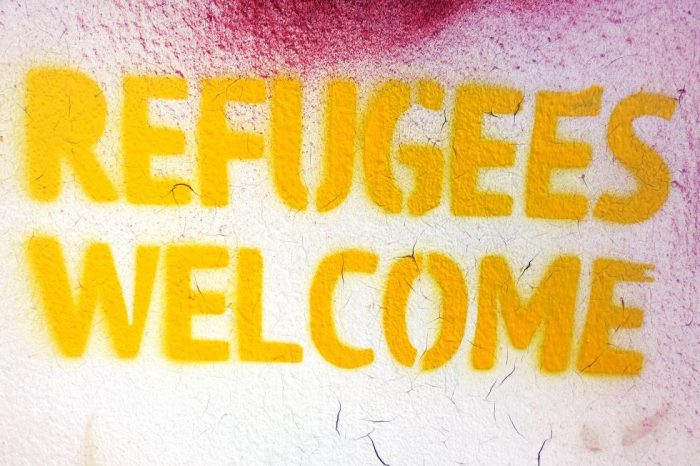The interview with refugee activists Turgay Ulu and Bino Byansi Byakuleka was published in March 2016 and is part of the Heinrich Böll Foundation‘s dossier “Civil Society Engagement”. It looks back at the so-called “welcome culture” of 2015, the self-managed refugee protest camp on Berlin’s Oranienplatz and the self-image of many people in Germany of wanting to be “helpers”. The interview was conducted by journalist Jan Ole Arps.
“Don’t you think that a lot of people who are involved in welcome initiatives want to behave more humanely than politics and Pegida?” he said.
Turgay Ulu: Humanitarian engagement is important. But it is not a solution. After that comes the deportation. Something must be done against war, against arms exports, against the tightening of asylum laws. Just handing out food is not enough.
What do you think are the motives of the “helpers”?
Bino Byansi Byakuleka: It’s about jobs. And cheap labor. Because we are not only bringing jobs for the helpers, but also cheap labor for the German economy. Why should they care about our political concerns? They are content to “help” us. They don’t want to see us as human beings who have the same rights. For me, the “welcome culture” is a culture of discrimination. To be honest, the helpers even manipulate the refugees by giving them the feeling that everything is okay here, while Interior Minister Thomas de Maizière declares that laws must be tightened and the “bad refugees” must be gotten rid of quickly.
Turgay Ulu: Not all initiatives and supporters are the same. Some really want to help, but they have no perspective. Another part consists of NGOs that receive money from the state. They only do humanitarian assistance and never cross the line of what is allowed.”

